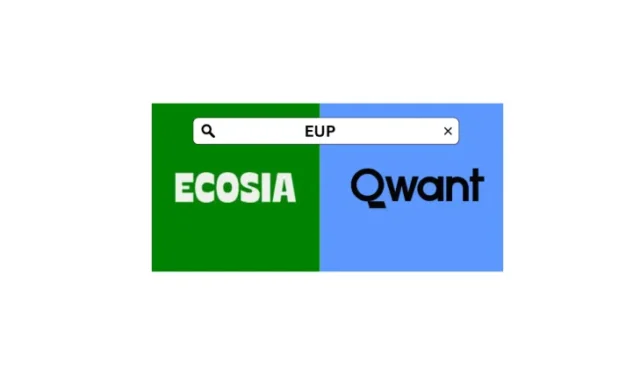Ecosia and Qwant Join Forces to Develop a European Search Engine Vision (EUP)

Key Insights:
- In a strategic alliance, Ecosia and Qwant have launched the European Search Perspective (EUP) to create an independent search index and lessen reliance on major tech entities.
- This initiative is set to debut in France by early 2025, expanding to Germany soon after, with later plans to incorporate English-language search capabilities.
- Ownership of EUP will be evenly divided between both companies, and it will function autonomously from its headquarters in Paris.
In a significant step towards combating the influence of major tech firms, two leading European search platforms are collaborating to establish their own search framework. Ecosia, a Berlin-based company recognized for its environmental initiatives, has teamed up with Qwant, a search engine from France that prioritizes user privacy, to develop a European search index.
This collaboration seeks to overcome their current dependencies on Microsoft’s Bing and Google’s search technologies. According to TechCrunch, the growing costs and the need for technological autonomy are key motivators behind this strategic partnership.
Launching as the European Search Perspective (EUP), operations will begin in France in the first quarter of 2025, with plans to expand into Germany by the end of that year. Initially, the focus will be on delivering enhanced search results in French and German, with capabilities for English-language searches anticipated in future stages.
Olivier Abecassis, acting as CEO for both Qwant and EUP, highlights that this venture is not primarily a competition with U.S. firms but a step towards ensuring Europe’s technology independence. Qwant’s engineering team and its current search index projects will transition to EUP.
This partnership combines the strengths of both enterprises, with Ecosia’s commitment to ecological sustainability and Qwant’s dedication to user privacy. Together, they collectively service over 26 million users worldwide, laying a robust foundation for their ambitious new venture.
The emergence of this European initiative is timely, addressing increasing concerns surrounding digital sovereignty and data independence. The EU’s Digital Markets Act, which mandates fair access for significant tech platforms, further supports the momentum of this project.


Leave a Reply